The LSP-R™ is a personality-based leadership assessment designed to identify and develop top leadership talent. Since the original version was first published in 2003, thousands of leaders have completed the LSP. The LSP-R leverages this data in combination with client feedback to provide an optimized test-taker experience and a more powerful report.
Download the psychometric summary to learn more about how the LSP-R was developed, and why it is a valid and reliable tool you can trust.
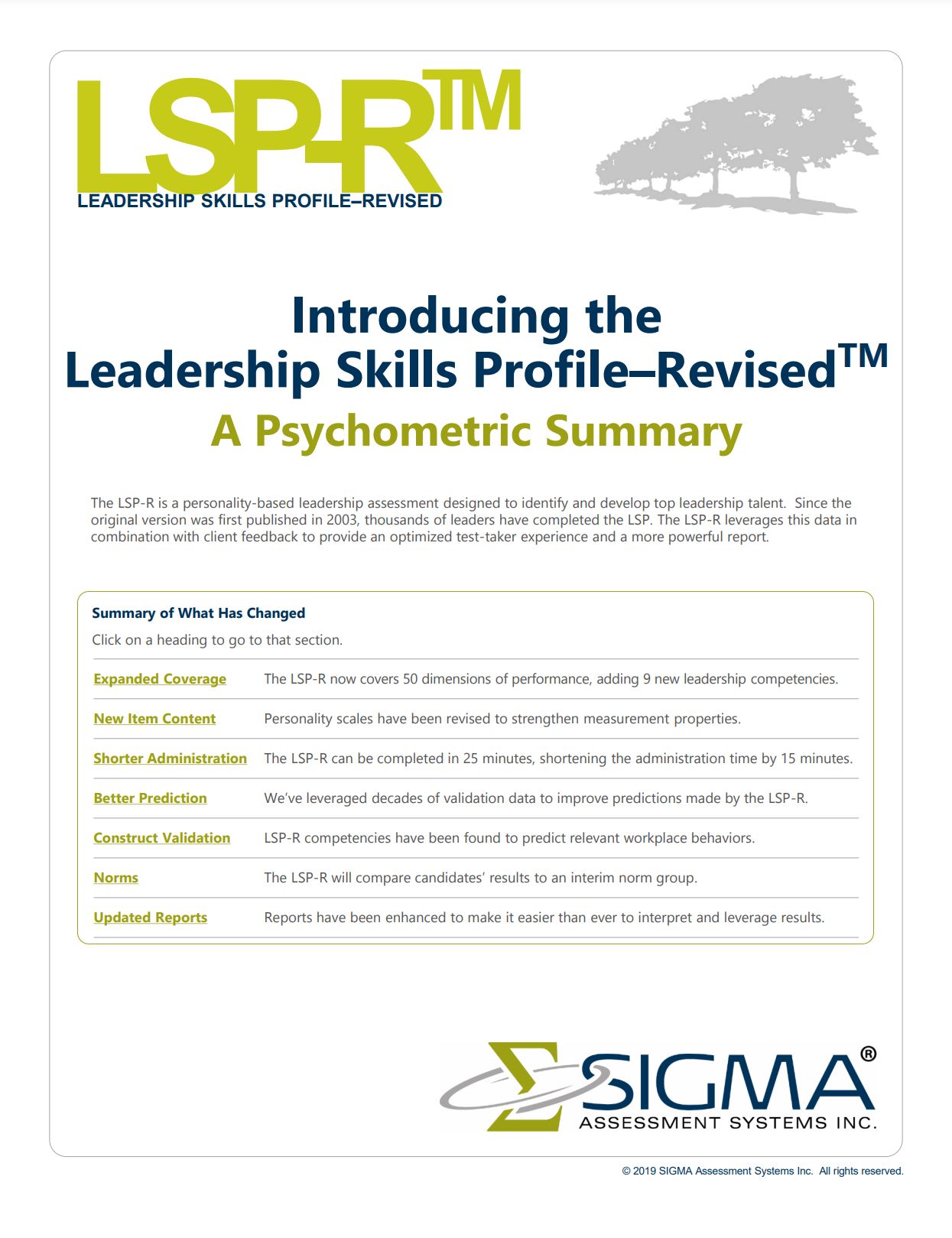
Summary of What Has Changed
- Expanded Coverage – The LSP-R now covers 50 dimensions of performance, adding 9 new leadership competencies.
- New Item Content – Personality scales have been revised to strengthen measurement properties.
- Shorter Administration – The LSP-R can be completed in 25 minutes, shortening the administration time by 15 minutes
- Better Prediction – We’ve leveraged decades of validation data to improve predictions made by the LSP-R.
- Construct Validation – LSP-R competencies have been found to predict relevant workplace behaviors
- Norms – The LSP-R will compare candidates’ results to an interim norm group.
- Updated Reports – Reports have been enhanced to make it easier than ever to interpret and leverage results.

Based on client feedback and a review of the leadership competency literature, nine leadership competencies were added to the LSP-R. In addition, the previous version of the LSP presented two summary scores: a General Leadership Effectiveness Score and an Overall Leadership Performance Score.
To reduce redundancy and enhance interpretation, we now present a single Overall Leadership Performance summary score. In addition, three competencies had minor name changes to further enhance interpretability. The classification of some competencies under each LSP-R Category was also updated to improve fit.
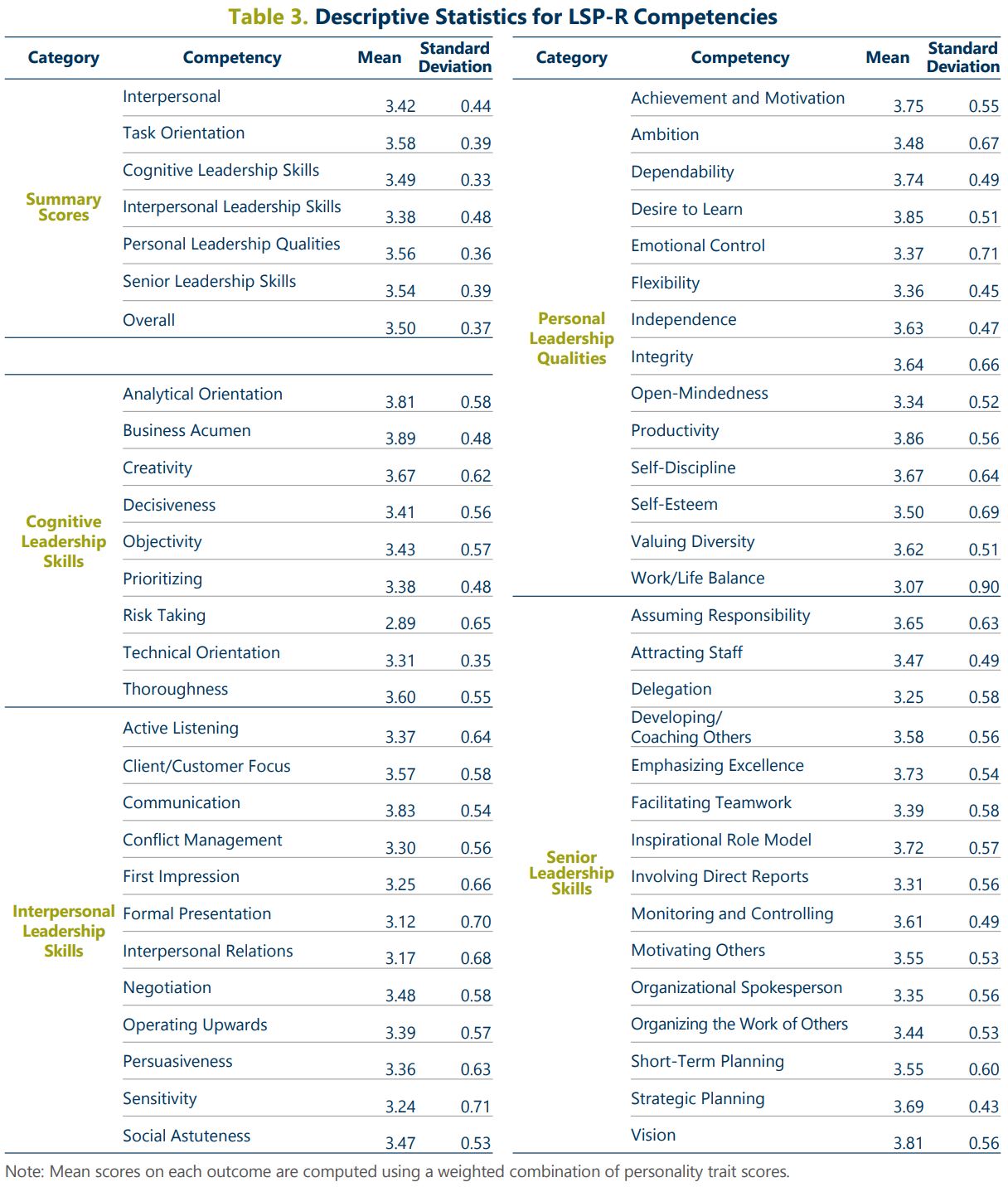
Items on the original LSP were derived from three seminal assessments: the Personality Research Form (PRF), Jackson Personality Inventory-Revised (JPIR), and Survey of Work Styles (SWS). As part of a large-scale, multi-year effort, the item content of each of these assessments were optimized and refined for inclusion in the LSP-R. Moreover, additional items were developed specifically for the LSP-R to target leadership competencies not adequately covered by existing scales
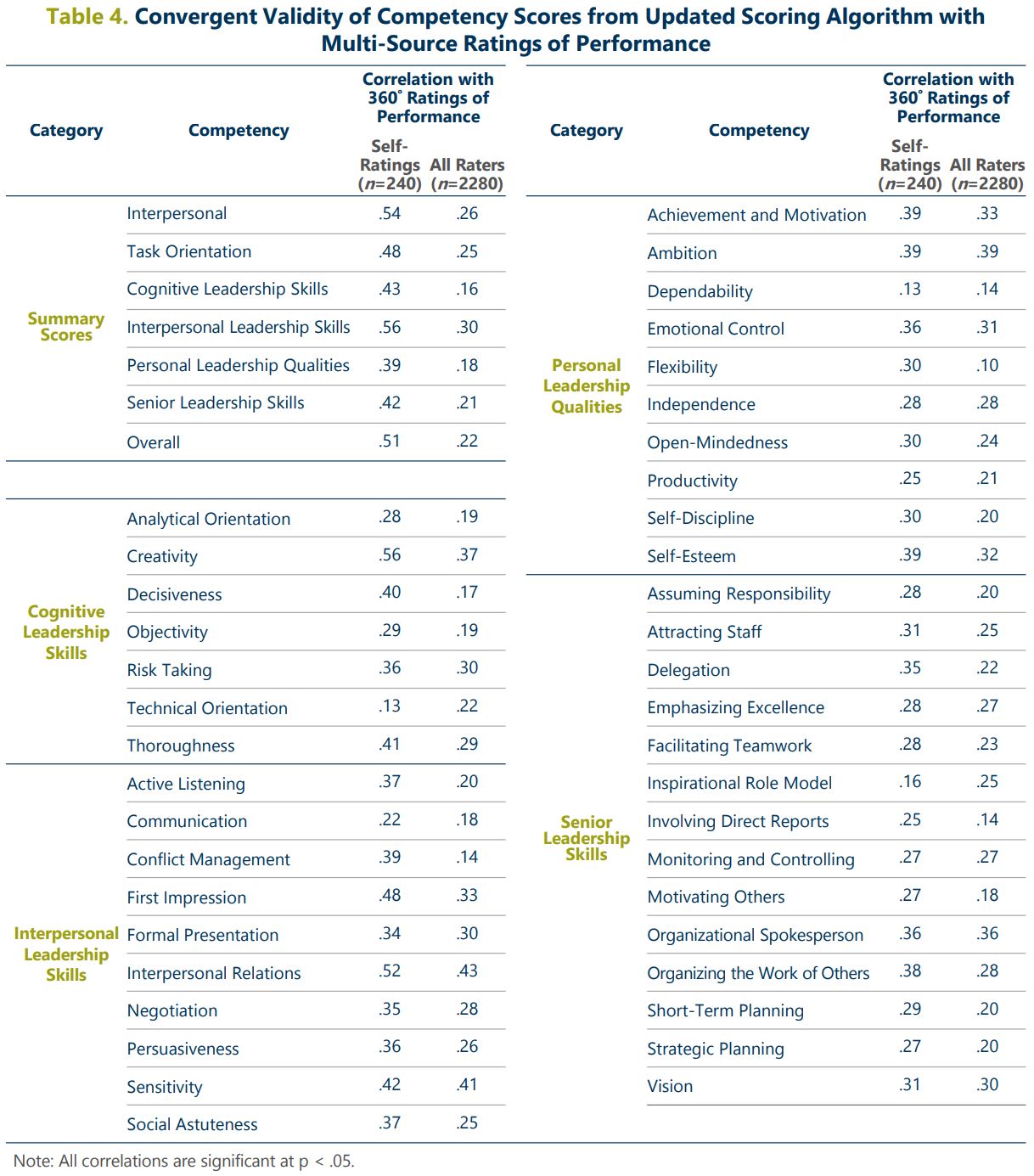
After undergoing extensive revisions, the LSP-R now has 228 items. This is substantially fewer items than the original LSP.
As a result, the administration time has been cut nearly in half, with the LSP-R taking just 25 minutes to complete.
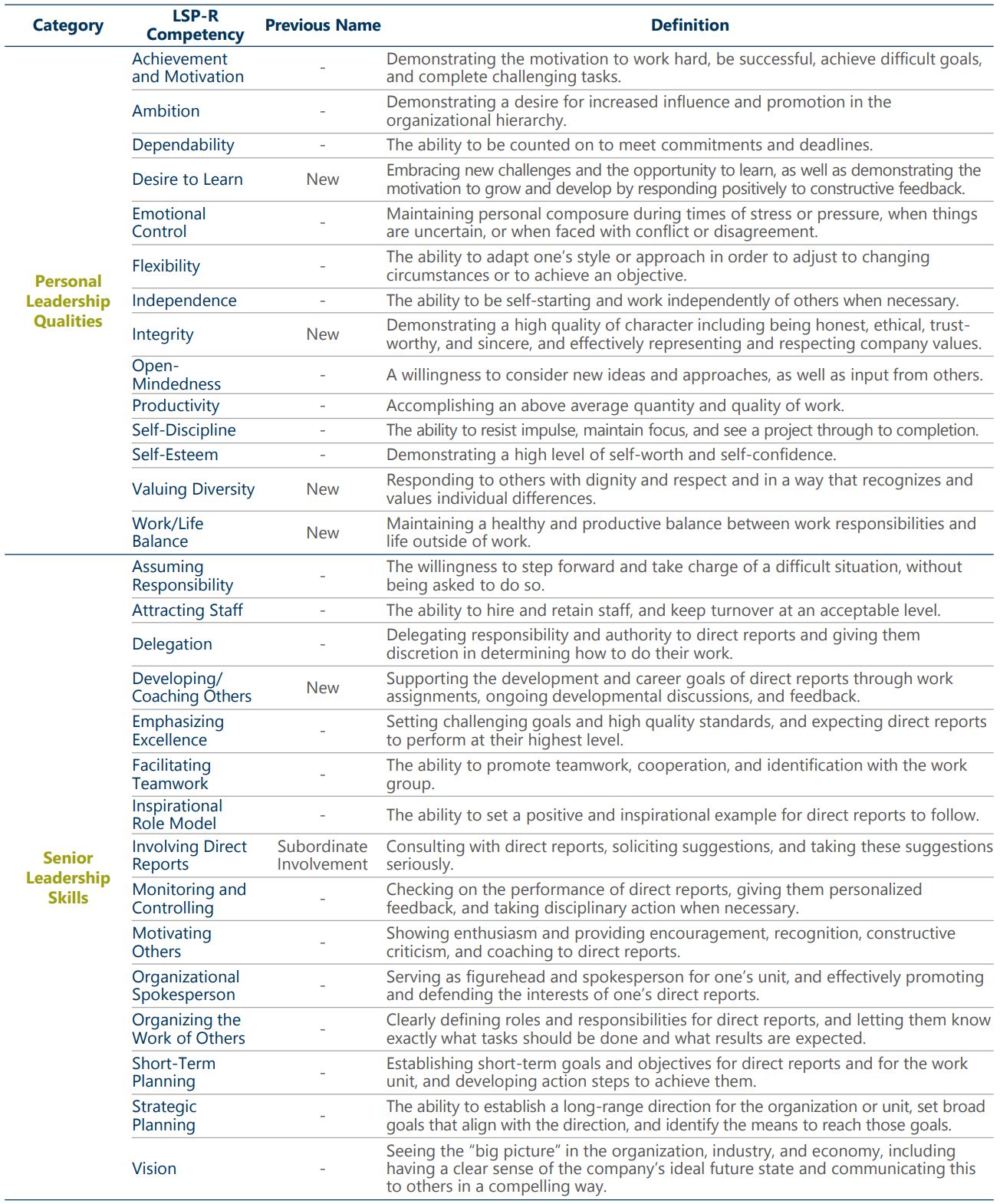
Most of the LSP-R’s enhancements are highly visible and intuitive: reduced administration time, inclusion of new competencies, updated items, and enhanced reports. However, arguably the biggest improvement is optimized prediction of leadership competencies based on underlying personality traits. Leveraging decades of validation data on the original LSP, the scoring algorithm has been updated for the LSP-R. This update to the scoring algorithm further improves the prediction of each leadership competency.
We used a combination of both empirical and expert criteria to refine the scoring algorithm. With regard to the empirical criteria, we leveraged data from both the LSP-R and our competency-based 360 degree feedback survey, SIGMARadius. The LSP-R and SIGMARadius both measure the same leadership competencies, but they do so in different ways. The LSP-R predicts competencies based on the leader’s self-reported personality traits whereas the SIGMARadius validates those predictions based on multi-source ratings of actual job performance as rated by supervisors, colleagues, and direct reports.

Validation and scoring of the LSP-R is based on 2280 people – supervisors, colleagues, and direct reports – rating 240 leaders who completed the original LSP, plus self-report evidence from 266 leaders completing both the original and revised LSP. With the release of the LSP-R, scores are generated by comparing test-takers’ results to an interim norm group of leaders. These norms are based on the responses from 266 paid participants recruited via Amazon MTurk. In the norm sample, 72% of respondents currently held leadership positions with their employers while the remaining 28% had recent leadership experience within the last 10 years. Participants averaged 6.75 years of leadership experience.
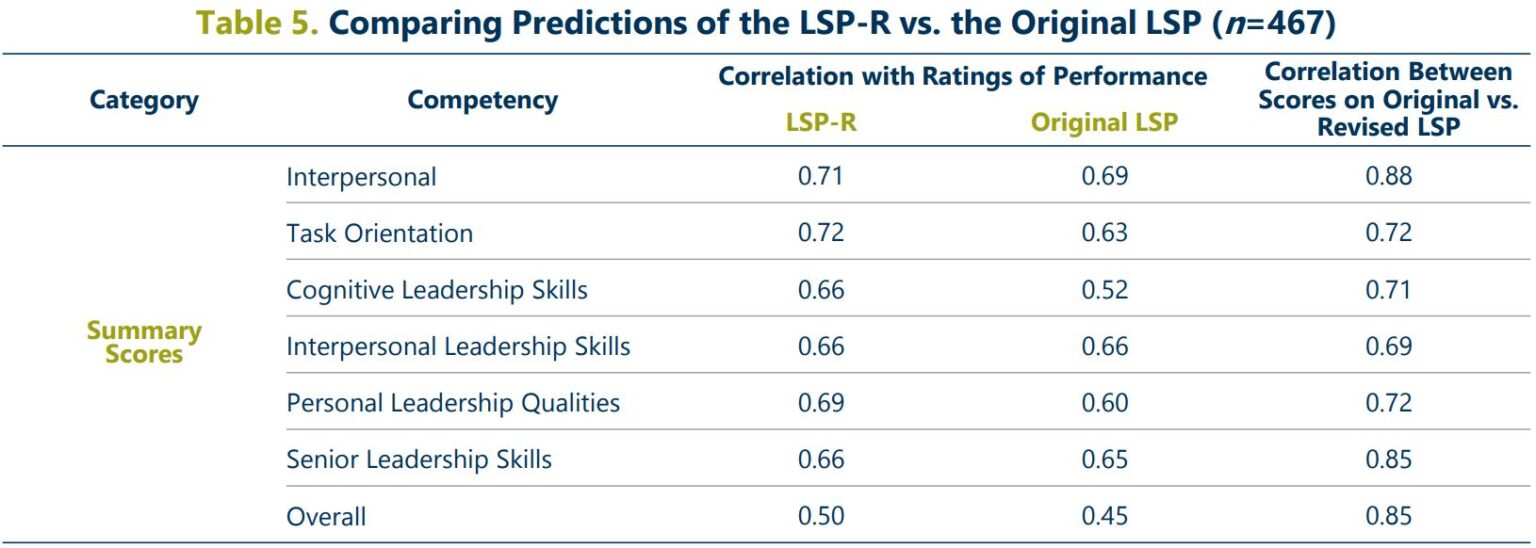
Using data collected from the norm sample, we were able to demonstrate that LSP-R competencies significantly predicted relevant workplace behaviors. In particular, we examined two sets of behaviors: counterproductive workplace behaviors and organizational citizenship behaviors.
Counterproductive workplace behaviors describe those behaviors employees engage in that can be damaging to their organization or coworkers. This can include a variety of actions such as theft, lateness, loafing, or sabotage.
Organizational citizenship behaviors are those actions employees choose to engage in that are outside their formal job description but which have a positive impact on their work environment

The LSP-R represents a comprehensive refinement of the original LSP, offering a shorter administration time, broader coverage of key leadership competencies, optimized prediction of those competencies, and enhanced reports to support self-directed or coaching-augmented leadership development.
Develop Leader Competencies with the LSP-R™
Order the LSP-R assessment today or contact us to find out more about our leadership development assessments.